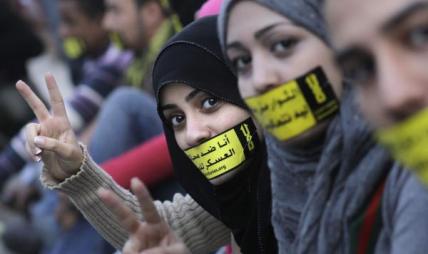CAIRO: OPEC, the oil-producing group that consumers worldwide love to hate, is fine tuning its strategy heading into a meeting this week in Algeria, determined that its fourth attempt in as many months to reverse plummeting crude oil prices will succeed.
Working against the Organization of Petroleum Exporting Countries is its own past – a history pockmarked with the rival priorities of its 13 member states and major policy blunders in times of economic crises.
One only need to look back two weeks when the group met in Cairo and postponed a decision on production cuts until Wednesday s meeting in Oran, Algeria, sending crude prices tumbling down to $40, the lowest level since 2004.
OPEC members fractious relationships have made it difficult to control supply, and thus price, in both good times and bad, said Edward Chow, senior fellow at the Washington-based Center for Strategic and International Studies Energy Security program.
The experience in the last 20 years suggests that they will have a hard time defending a price floor, he said, noting the group had similar problems when crude rocketed to nearly $150 a barrel in July.
They ve been riding the roller coaster rather than managing supply, Chow added.
David Kirsch, oil analyst with Washington-based consultancy PFC Energy, said Saudi Arabia, the group s largest producer and de facto leader, may have allowed crude to tumble as a warning to other members of what s in store should they fail to adhere to production cuts immediately.
Definitely, they were playing a game of chicken going into Cairo, said Kirsch. I don t think they re doing that any more.
The crude futures market is now in what oil traders call a contango – where oil delivered in the next few weeks is cheaper than in the following months. Much like shoppers rushing to buy sale items at the store, crude consumers have been stocking up.
With demand hitting 25-year lows, the economies of oil producing countries are under extreme stress and OPEC must slash output to reverse the contango trend.
Cooperation from non-OPEC nations like Russia may help, though it remains unclear whether Moscow will offer anything more than moral support. Its production is already on the decline and the oil giant may already be in recession.
OPEC President Chakib Khelil said the best way to get a reaction from the oil market was to surprise it, suggesting a cut even larger than the expected 1.5 million to 2 million barrels per day.
That strategy has backfired before, however, leaving the impression that OPEC is turning the screws when the global economy is at its weakest.
The other half of OPEC s strategy is selling a concept that has rarely been received well by Western nations: a fair price for oil, rather than what the market is willing to pay. Saudi King Abdullah has put a fair price tag at about $75.
It is not only OPEC that thinks depressed oil prices may be setting the globe up for another price shock when the economy rebounds – the Paris-based International Energy Agency and US Department of Energy are among the believers.
The reasoning, largely, is that crude at such low levels can lead to a massive pullback on investment in new projects and supply sources.
But OPEC members also have some very personal reasons for wanting high prices.
Oil revenues provide up to 90 percent of overseas revenues for some members, and lower prices, along with cutting production, would reduce petrodollar revenues. That could force some to cut spending in key social services crucial to maintaining stability in their countries.
Iran s hardline president acknowledged for the first time earlier this month that tumbling oil prices will force sharp cuts in spending. Tehran has been among the most vocal supporters of higher crude prices, and one of the countries cited by analysts as being somewhat lax with its quotas.
Certainly, they got it wrong last meeting, said Rob Laughlin, senior oil analyst with London-based brokers MF Global. There was some internal … dissatisfaction with some members not adhering to quotas, and that OPEC should be cutting as a cartel.
While the group may have been more true to its goals in recent weeks, a panicked market has undermined those efforts.
A research report by Barclays Capital said OPEC output has fallen by 1.7 million barrels per day since August.
We do not believe that the current demand-focused nature of sentiment has made any real account yet of either falling OPEC output or the developing weakness of non-OPEC supply, said the report.
As the only OPEC member with any meaningful spare output capacity, the task of balancing volatile oil markets traditionally falls on Saudi Arabia s shoulders. Too often, it has found itself cutting production while others cheated.
OPEC s credibility, and its ability to influence prices, has paid the price.
When demand slows down, OPEC becomes at its weakest because they are going to have to lower the production ceiling, said Muhammed-Ali Zainy, senior energy economist with the London-based Center for Global Energy Studies. Each country would want to reduce the least possible, especially the little countries and those in need of money.
In the mid-1980s, non-OPEC oil production was rapidly increasing, outstripping demand and pushing down prices even as the group tried to offset the slide with production cuts. But fed up with some members blatantly disregarded quotas, Saudi Arabia struck deals with refiners and ramped up its own production. Crude prices tumbled to $10 a barrel, devastating the economies of oil producing countries.
The market eventually rebounded, but the Saudis could wield the same cudgel this week in Algeria.
If Saudi Arabia sticks to its quota and sees the others are cheating, (the other members) are going to be punished in the same way they were punished in the mid-1980s, said Zainy.


